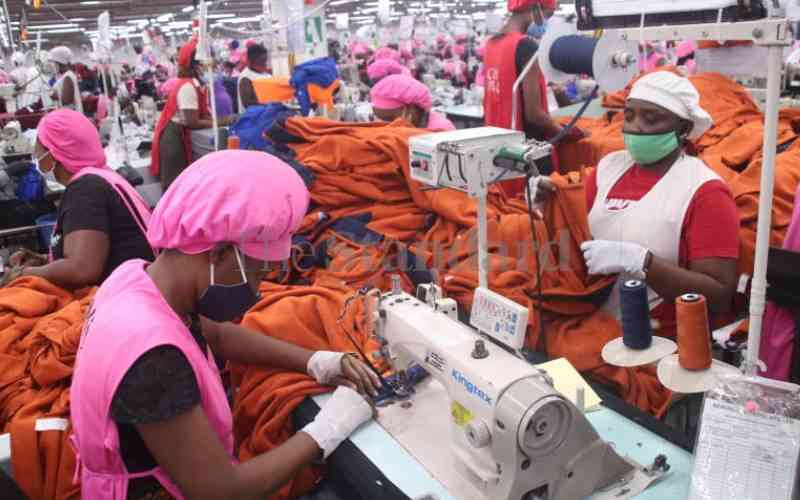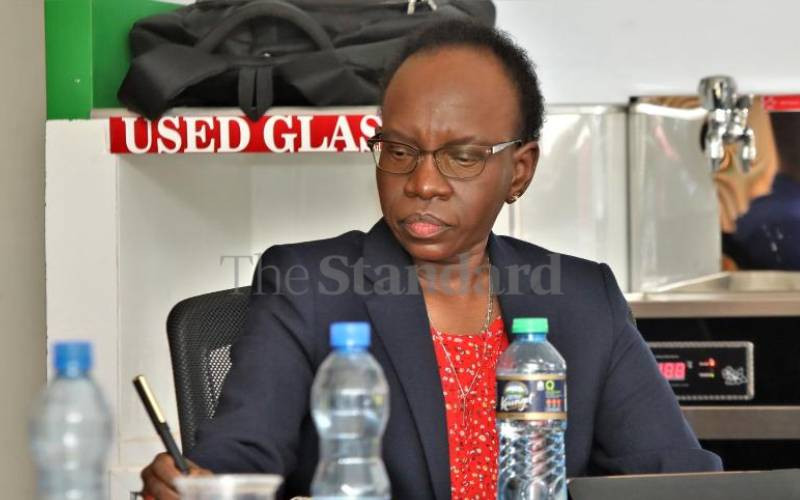Manufacturers have accused counties of erecting numerous non-tariff barriers, which have curtailed free movement of goods in the country.
Kenya Association of Manufacturers (KAM) Chief Executive Officer Phyllis Wakiaga said the numerous levies and requests by county governments have amounted to double taxation. Ms Wakiaga was speaking on Thursday when KAM and TradeMark East Africa (TMEA) signed the second phase of a partnership started two years ago. The objective of the partnership is to create a better business environment for manufacturers and enhance the sector's competitiveness in the region. TMEA gave about Sh400 million for the initiative.
"Now, when you try and move your truck and you have advertising, most of the county governments will require you to pay advertising fees across the country," said Ms Wakiaga. This has resulted in some manufacturers removing their branding from their vehicles, she added.
Regionally, non-tariff barriers have been responsible for the decline of the East African market, noted Ms Wakiaga. She said certain regional bodies and counties have requested further certification on certain products once the goods arrive in their counties. This is even when the products are certified and standards confirmed by the Kenya Bureau of Standards.
Besides non-tariff barriers, the second phase of the partnership would also zero-in on trade in counterfeits, harmonisation of standards within the East African Market, and accessibility and centralisation of information.
Ms Wakiaga noted that in 2013 EAC countries lost close to $400 million (Sh42 billion). The counterfeits and sub-standard goods also stole about 70 percent of manufacturer's market share for manufactures with the taxman losing billions in revenue. She explained that some companies such as Everyday had to shut down their plant due to counterfeits.
KMEA Country Director Dr Chris Kiptoo echoed Ms Wakiaga's sentiments noting that the manufacturing sector had recorded a drop in sector growth from 3.4 percent in 2011 to 3.1 percent in 2012. This is due to high costs of production, competition from imported goods, high cost of credit, high costs of doing business related to the impact of non-tariff barriers, compliance to standards and access to information.
"As a key driver for the measurement of trade and business environments in the region, TradeMark East Africa is keen to see through the second part of this partnership which promises to open up channels to engage policy-makers and more importantly to find solutions the hindrances of the sector's growth," he added.
 The Standard Group Plc is a
multi-media organization with investments in media platforms spanning newspaper
print operations, television, radio broadcasting, digital and online services. The
Standard Group is recognized as a leading multi-media house in Kenya with a key
influence in matters of national and international interest.
The Standard Group Plc is a
multi-media organization with investments in media platforms spanning newspaper
print operations, television, radio broadcasting, digital and online services. The
Standard Group is recognized as a leading multi-media house in Kenya with a key
influence in matters of national and international interest.
 The Standard Group Plc is a
multi-media organization with investments in media platforms spanning newspaper
print operations, television, radio broadcasting, digital and online services. The
Standard Group is recognized as a leading multi-media house in Kenya with a key
influence in matters of national and international interest.
The Standard Group Plc is a
multi-media organization with investments in media platforms spanning newspaper
print operations, television, radio broadcasting, digital and online services. The
Standard Group is recognized as a leading multi-media house in Kenya with a key
influence in matters of national and international interest.









